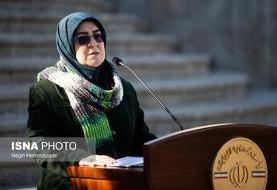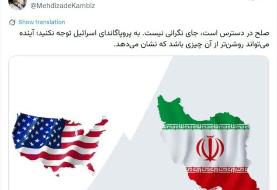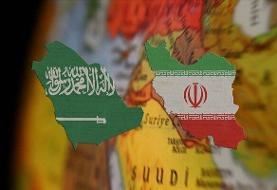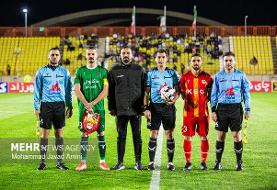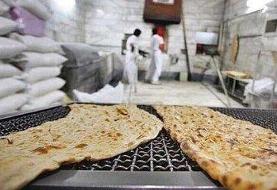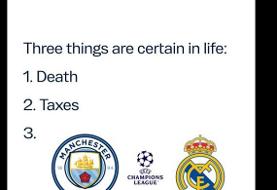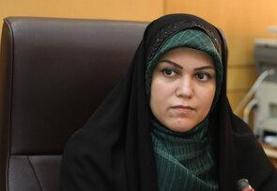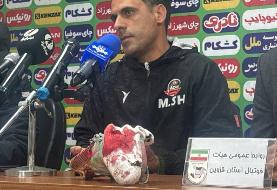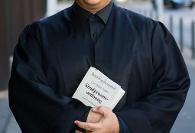شهره
شهره صولتی (نام اصلی: فاطمه)، در ۱۴ دی ۱۳۳۷ در تهران نو تهران بدنیا آمد. شهره از خوانندگان موسیقی پاپ ایران است که بعد از انقلاب به آمریکا مهاجرت کرده و هم اکنون در لس آنجلس زندگی می کند. در ۷ سالگی متوجّه شد که به موسیقی علاقه بسیاری دارد و به هنرستان موسیقی رفت تا با موسیقی آشنایی بیشتری پیدا کند . در ۱۵ سالگی ، وارد دنیای هنر شد و خوانندگی را پیشه خود کرد.

اولین آهنگ او دختر مشرقی بود و مدت زیادی طول نکشید که آوازه شهرت و محبوبیت او به همه جا رسید، از جلد مجله های موسیقی تا وسایل ارتباط جمعی دیگر. پس از موفقیت آهنگ هایش، برای اوّلین بار راهی سینما شد و به همراه داریوش در فیلم فریاد زیر آب بازی کرد امّا دیگر زمان مهلت نداد و در سال ۱۹۷۸ به آمریکا آمد و در نیویورک ماندگار شد شهره پس از یک سال اقامت در نیویورک ازدواج کرد و ثمره ازدواجش یک دختر به نام طناز است. بعدها از شوهرش خسرو نایبی جدا شد و دیگر ازدواج نکرده است. در سال ۱۹۸۴ به لس آنجلس آمد و اوّلین آهنگهایش را در خارج از کشور در آلبوم طلسم اجرا کرد.
آلبومشناسی
- هوس (۲۰۰۵)
- یارم کو؟ (۲۰۰۴)
- پیشونی (۲۰۰۳)
- سفر (۲۰۰۲)
- عطر (۲۰۰۱)
- حکایت ۵ (۲۰۰۰)
- سایه(۱۹۹۹)
- عکسهاشو پاره کردم (۱۹۹۸)
- شنیدم (۱۹۹۷)
- قصه گو (۱۹۹۶)
- زن (۱۹۹۴)
- نمیزارم بری
- گرفتار
- صدای پا
- یکی یک دونه
- پنجرهها
- خاطره
- مرمر
- هم نفس
- مهمون
- سکه طلا
- جمعه به جمعه
- میکس
- جان جان
- شیطونک
- طلسم (۱۹۸۴)
- سلام (۱۹۸۴)
- دختر مشرقی (۱۹۷۵)
Shohreh Solati (born Fatemeh Solati in January 4, 1957, Tehran, Iran) is a popular Iranian singer. She has had one of the most consistently active and prolific careers among contemporary, women Iranian singers. Since the Islamic Revolution in Iran, she has continued her music career in exile and achieved acclaim for her contribution to Iranian music.

She has received recognition for her ability to continuously reinvent herself as well. Sometimes called the "Iranian Madonna", Shohreh also has been referred to as the "Queen of Scene", for her attention-grabbing music videos and stage presence, as well as the "Queen of Iranian Pop".
Biography
Born in Tehran to a well-to-do family of artists and entertainers, Shohreh developed an interest in music early on - singing at seven years of age. She later went on to study at the National Iranian Music Conservatory, where she received training in singing and the clarinet. Her first album titled Dokhtar-e-Mashreghi (Eastern Girl) was successful, garnering some notability. Magazines directed toward the youth of Iran in the 1970s also gave exposure to the singer.
The Revolution
Shortly before the Revolution in 1978, Shohreh left Iran to perform in a series of concerts in the United States and, due to imposed restrictions of the new leadership on entertainers, was not able to return. She initially settled in New York and soon after married. Since the revolution came so unexpectedly, she and other exiled Iranian singers initially faced some difficulties to re-establish the community. However, after the birth of her daughter, Shohreh became more involved in her professional career.
Wider appeal
Leaving behind New York, Shohreh moved to Los Angeles in the early 1980s, settling with the exiled Iranian music industry of the 1970s, who also established in that city. Working with songwriters, composers and arrangers such as Mohammed Moqadam, Jaklin, Siavash Ghomeishi and Shubert Avakian, she produced and released several new albums. Most of these albums were nostalgic of the golden years of Iranian life just a few years before and thus appealed to a much wider audience, giving Shohreh's fame momentum. The yearning for Iran in Shohreh's music established a strong solidarity amongst the struggling Iranians who found comfort in her songs.
Her notable albums during this period include Jaan Jaan, Salam, Sedaayeh Paa and Shenidam. Throughout the late 1980s and 1990s, Solati managed to increase her appeal by the release of newer albums, each earning commendation. In the 1980s she had many concerts with Siavash Shams and Andy Madadian.
However, it was not until the release of the album Zan (1994) that she unequivocally garnered positive reviews from critics. The themes of her songs in that album not only highlighted greater recognition of women's rights, but they also underlined the importance of women's duties. Furthermore, in the video “Ayeneh” (Zan) she donned on a black chador (the traditional garment worn by women of Iran), a move that evoked affection from the Iranian community toward a singer who represented her background with such pride. This led to the success of her concert at Hollywood Palladium in October 1995.
At the turn of the millennium, Shohreh continued releasing more albums outreaching her popularity beyond the borders of Iran. With the best-seller releases of Ghesseh Goo, Saayeh, Atr, Safar, Pishooni, and Havas she has rivaled the work of such singers as Leila Forouhar and Nooshafarin. Some have argued that Shohreh in fact has eclipsed these singers in the last few years. Her music albums produced outside of Iran have now outnumbered her numbers before the revolution. She has been credited to have given sold out performances in U.S., Canada, Norway, Denmark, Netherlands, Italy, Britain, Sweden, France, Switzerland, Germany, Cyprus, Turkey and Israel.
Recent involvements
It was announced on Shohreh's official website in 2006 that the singer is working on a new album. The release date of this work is not yet available. Also, it was disclosed that she will be starting her own fragrance line. When this perfume will be commercially available is to be publicized soon.
Personal life
Family
Unlike her career, little is known about Shohreh's personal life. She is divorced from her husband, Khosrow Nayebi, and has not married since. Whether past marital problems prevented her from future marriage commitments, she does not elaborate.
Shohreh has one daughter named Tannaz, to whom she is said to be close. She dedicated a song to her from her recent album Havas. She has a close-knit family, and she sometimes collaborates with her brother Shahram Solati on various albums. In Panjereha, both were critically acclaimed.
Claims
In a recent interview broadcast on a Los Angeles-based Iranian satellite TV station, Shohreh spoke of abuse in the 1970s that resulted in a dislocated shoulder by Mahmoud Ghorbani, Googoosh's ex-husband. His assistance in starting Shohreh's career is acknowledged by both parties, but after recently re-emerging into the spotlight, he has claimed to have had romantic involvement with the singer. Shohreh has dismissed this statement as egotistically motivated.
It is speculated that due to Shohreh's accelerating fame in recent years, individuals are now asserting a special place in the singer's personal life. As of 2006, beyond a professional relationship, no evidence of romance between the two has come to light.
Discography
- 1975: Dokhtar-e-Mashreghi
- 1983: Salam
- 1984: Telesm (with Shahram Shabpareh)
- 1987: Sheytoonak
- 1990s: Jaan Jaan
- 1989s: Mix
- 1990s: Joomeh Be Joomeh
- 1990s: Sekeh Tala (with Masoud Fardmanesh)
- 1990s: Mehmoon (with Martik)
- 1990s: Ham Nafas
- 1990s: Marmar (with Dariush, Ebi, and Farzin)
- 1990s: Khatereh 7 (with Moein)
- 1990s: Panjereha (with Shahram Solati)
- 1990s: Yeki Yekdooneh (with Shahram Solati)
- 1990s: Sedaye Paa
- 1990s: Gereftar
- 1990s: Nemizaram Beri (with Shahram Solati and Sattar)
- 1994: Zan
- 1996: Ghesseh Goo
- 1997: Shenidam
- 1998: Aksaasho Paareh Kardam
- 1999: Sayeh
- 2000: Hekayat 5 (with Masoud Fardmanesh)
- 2001: Atr
- 2002: Safar
- 2003: Pishooni
- 2004: Yaram Koo? (with Faramarz Aslani and Siavash Ghomeishi)
- 2005: Havas







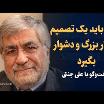 ویدئو: مقامات و جناح های مختلف نظام برای اولین بارمشترکا ...
ویدئو: مقامات و جناح های مختلف نظام برای اولین بارمشترکا ...
 اخبار و ویدیوهای تازه از انقلاب ایران
اخبار و ویدیوهای تازه از انقلاب ایران






